Debugging the Android Runtime within your app's Android Studio project
What is this document about?
In certain scenarios where runtime errors occur, the debug info provided by the NativeScript CLI is not sufficient. This article will guide you through the steps needed to debug the Android Runtime library module as a part of your NativeScript application. It implies you have already cloned and set up the android-runtime repository. For more info on how to setup the android-runtime project on your workstation refer to its README.
Requirements
- Android Studio >= 2.3.x
- All the tools needed to build the Android Runtime. Read more info here.
-
(Debug C++) Once Android Studio Is installed, you need to
install the
LLDBtool used for debugging native code. You can do that by: navigating toTools -> Android -> SDK Managerthen go toSDK Toolstab and installLLDB.
Creating the sample application
1. Create a new NativeScript application using one of the following commands depending on your language/technology preference:
NativeScript with Angular:
tns create debug-android-runtime --ng
NativeScript with TypeScript:
tns create debug-android-runtime --tsc
NativeScript with plain JavaScript:
tns create debug-android-runtime
2. Prepare your application's Android Studio project:
cd debug-android-runtime
tns prepare android
3. Open the Android Studio project:
- Open Android Studio
-
Click
File -> OpenorOpen an existing Android Studio project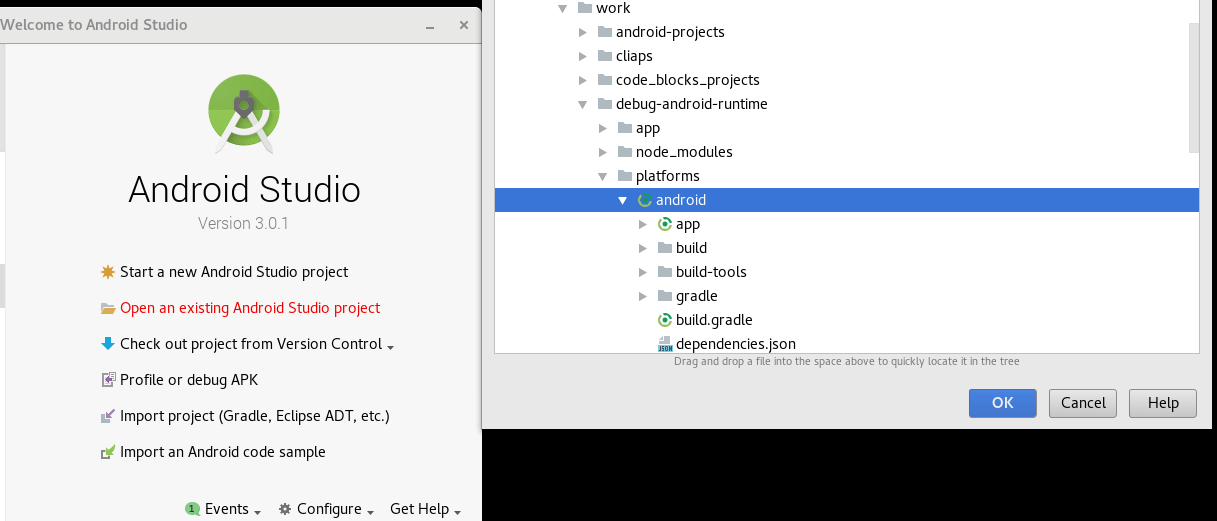
-
Set path to the project: e.g.
/home/userName/debug-android-runtime/platforms/android - Open the project
Note: Tested with Android Studio 2.3.3, 3.0.0, 3.0.1 If you don't need to debug the Android runtime, at this point you can already build your app using Android Studio by running the
:appproject play button.
Add Android Runtime module library as a dependency
1. Make sure you have NDK and SDK directories set, because it's needed to build the Android runtime.
- Click
File -> Project Structure - Navigate to
SDK Localtionsection -
Check if
Android NDK LocationandAndroid SDK Locationare set
Following the set up the Project Structure dialog
look like this:
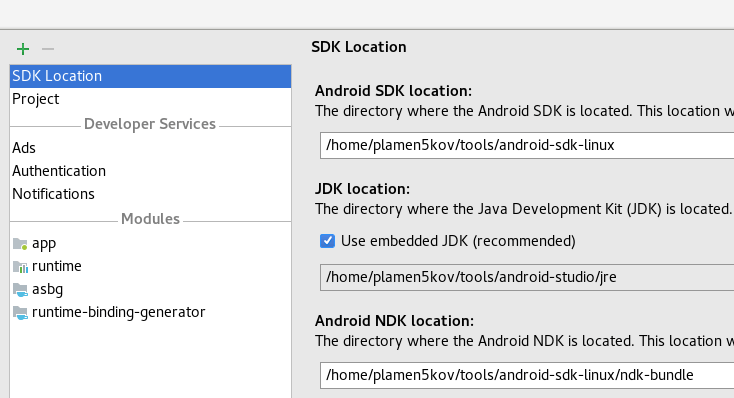
2. Add runtime library module to your project
WARNING: Make sure your environment fulfills all the requirements mentioned in android-runtime's README.
-
Open
settings.gradlefile in the already opened Android Studio project, which should look like this:

-
Uncomment the included projects:
:runtimeand:runtime-binding-generator -
Uncomment and set the
:runtimeand:runtime-binding-generatorproject dirs. These project dirs, can be found in the already cloned android-runtime repository.
After the changes, Android Studio will ask you to sync files and
settings.gradle file should look like:

After the sync has completed, the :runtime and
:runtime-binding-generator modules should appear in
the Project view in Android Studio:
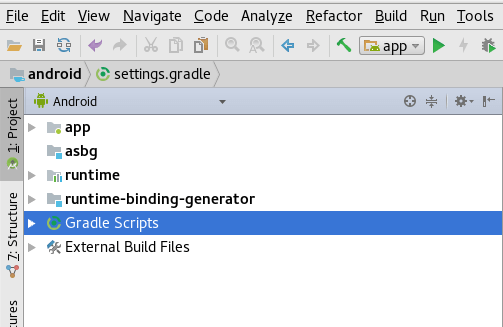
Debug the Android Runtime
1. Debugging the runtime Java code
If you only want to debug the Java part of the runtime, you're already all set up. All you need to do is set a break point and run in debug.
-
Open
Runtime.javaand set a breakpoint at:private void init ...method.
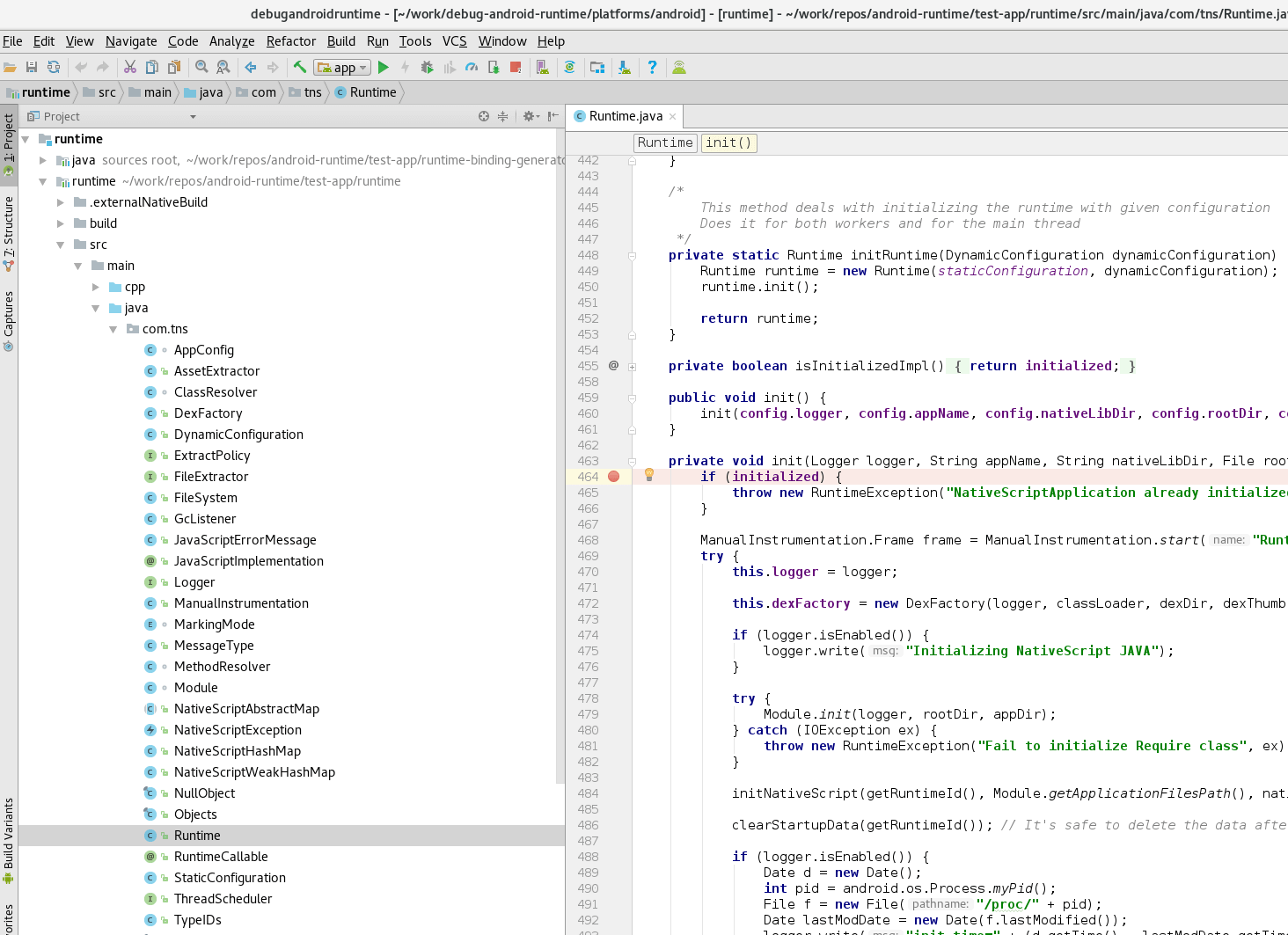
- Run Debug
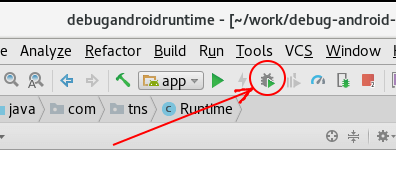
When you run the project in debug, you should see the Android Runtime build log in the Gradle Console(bottom right).
2. How to debug both Java and the C++ part of the runtime
-
Open the
:appproject debug configurations:
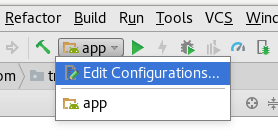
- Add the runtime symbols in the debugger tab.

The symbols can be found in the cloned android runtime repo in:
<android-runtime-repo>/test-app/runtime/build/intermediates/cmake/release/obj. In order for this folder to exist, you must run the android
runtime build at least once.
-
Open
com_tns_Runtime.cppand set a breakpoint at:extern "C" JNIEXPORT void Java_com_tns_Runtime_initNativeScript ...method.
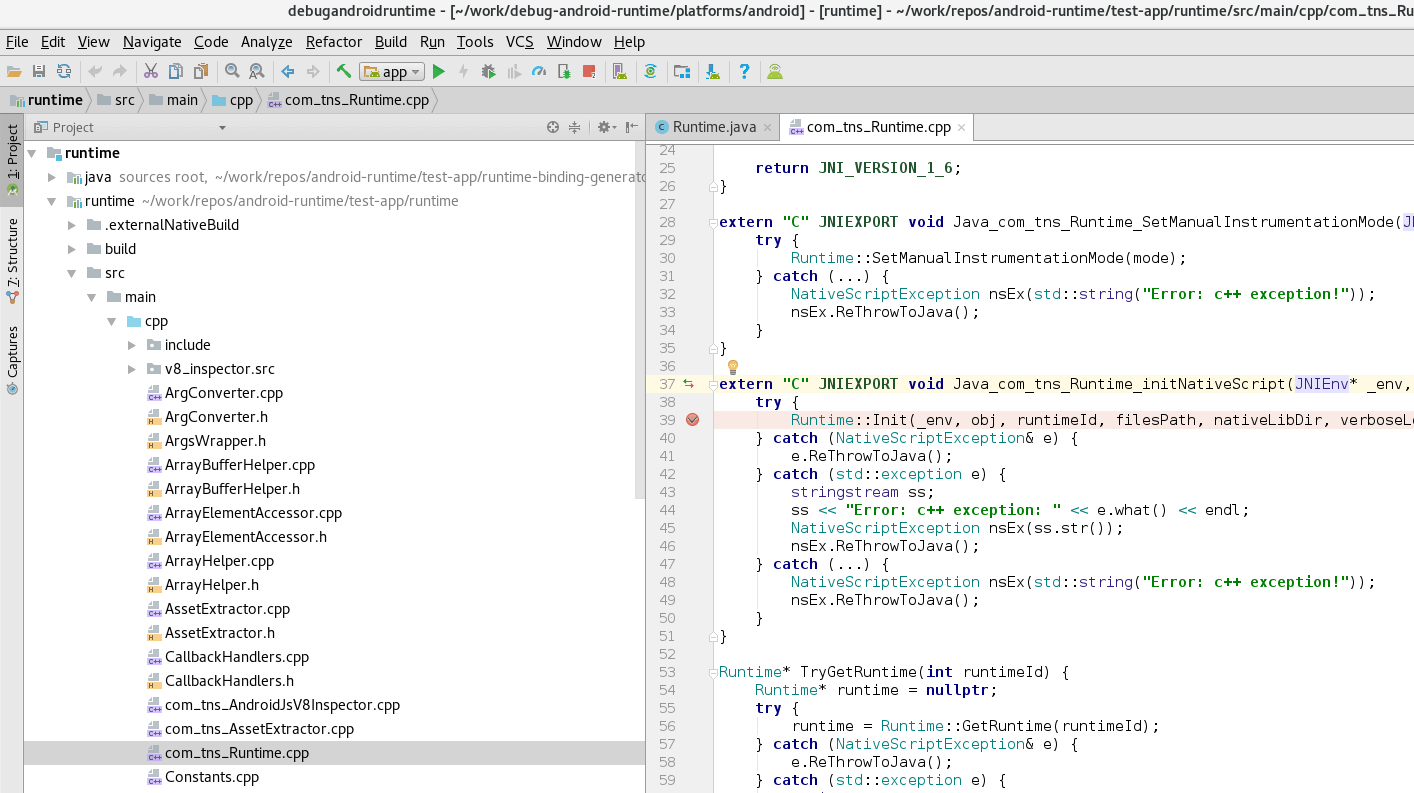
- Run Debug

Known Issues
-
If you have NativeScript plugins, containing Java Libraries in your application, you will still be able to build it with Android Studio, but you won't be able to debug it with the Android runtime. We will fix that issue in the upcoming releases.
-
If you encounter this error:
Error while starting native debug session: com.intellij.execution.ExecutionException: LLDB package hasn’t been found, you're probably trying to debug C++ code and you need to install theLLDBdebugger. Look at the Requirements for instructions on how to do it. -
If you encounter this error:
Error:Unable to find module with Gradle path ':runtime' (needed by module 'app'.)

Delete the .gradle and .idea folders
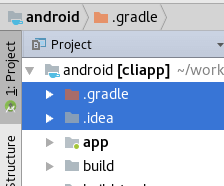
Click:
File -> Invalidate Caches/Restart -> Invalidate and
Restart